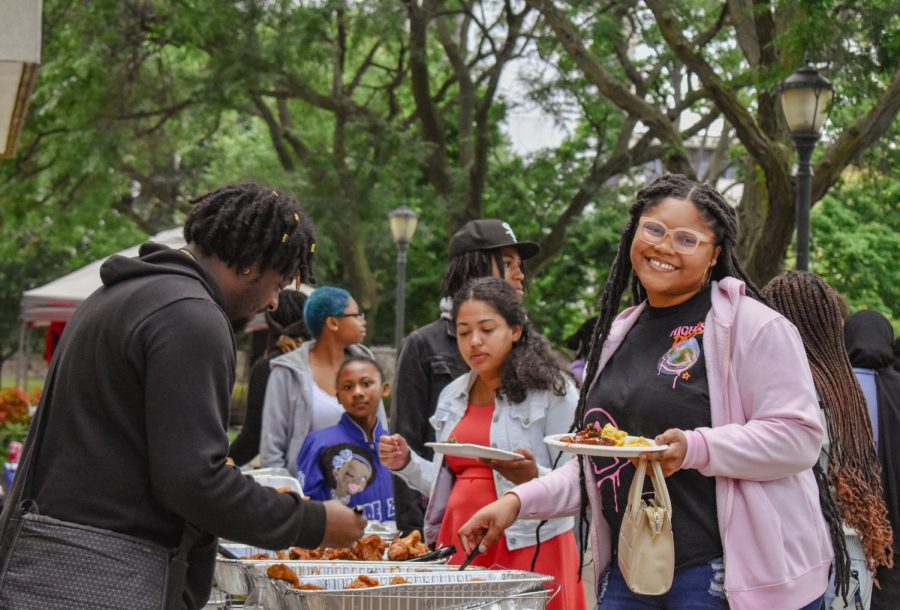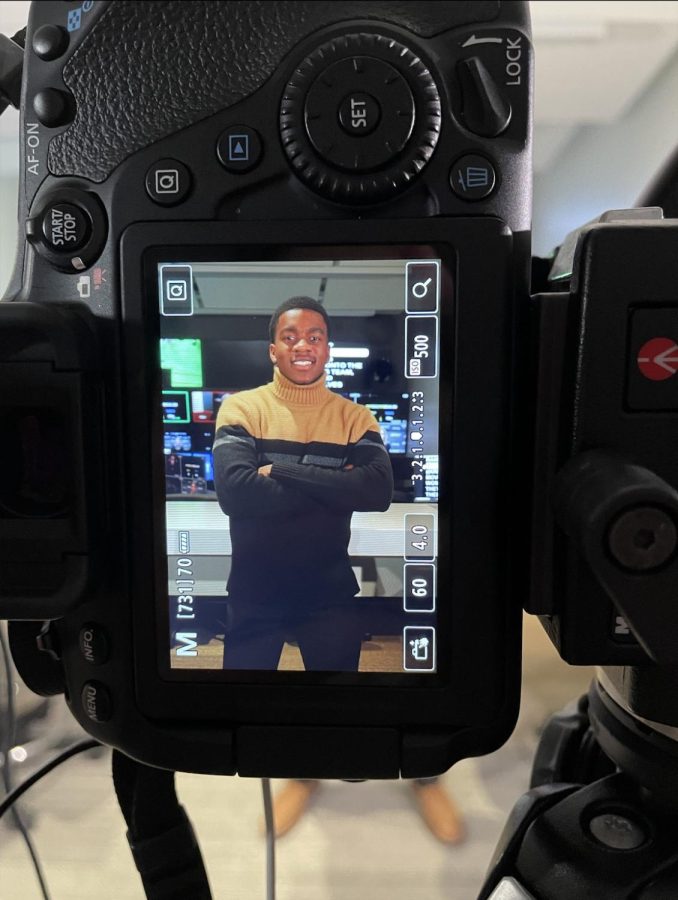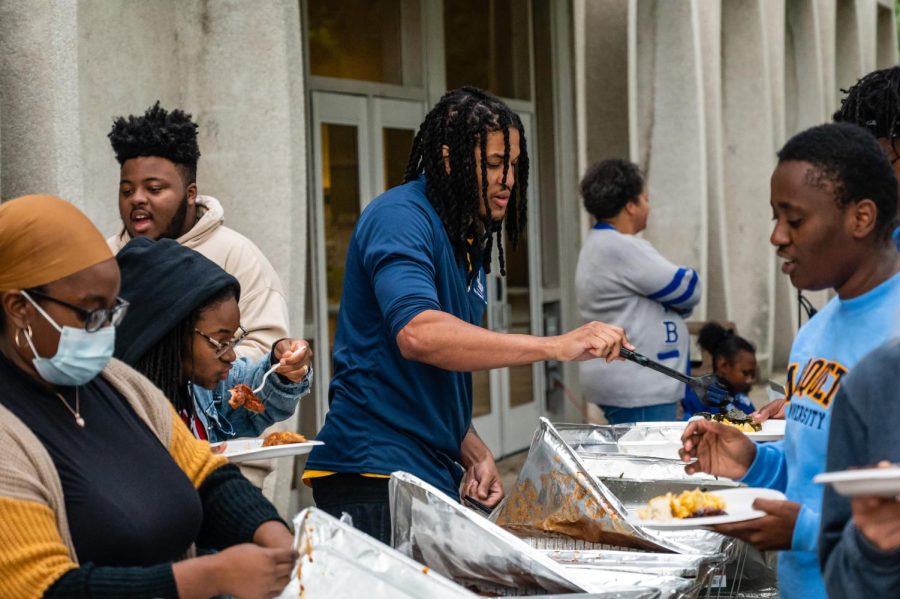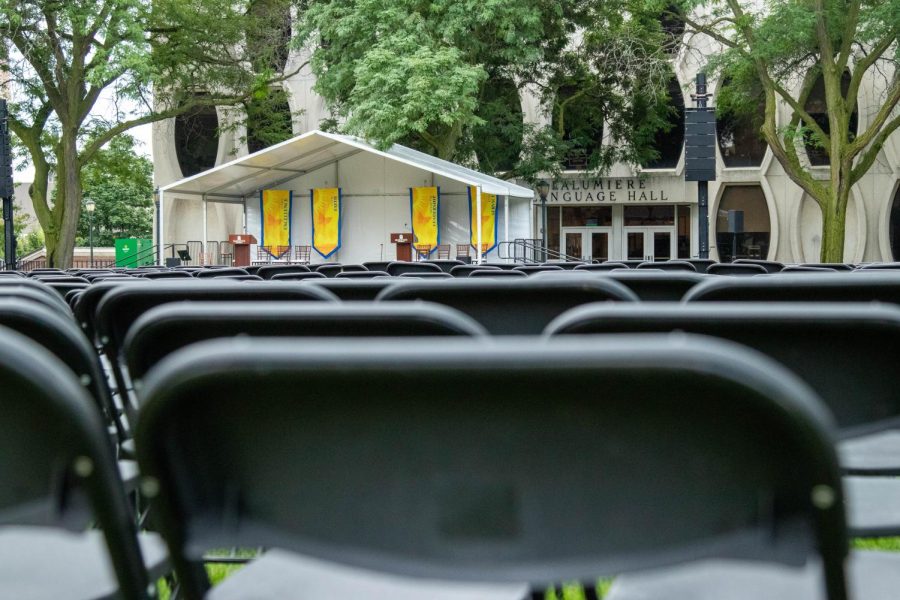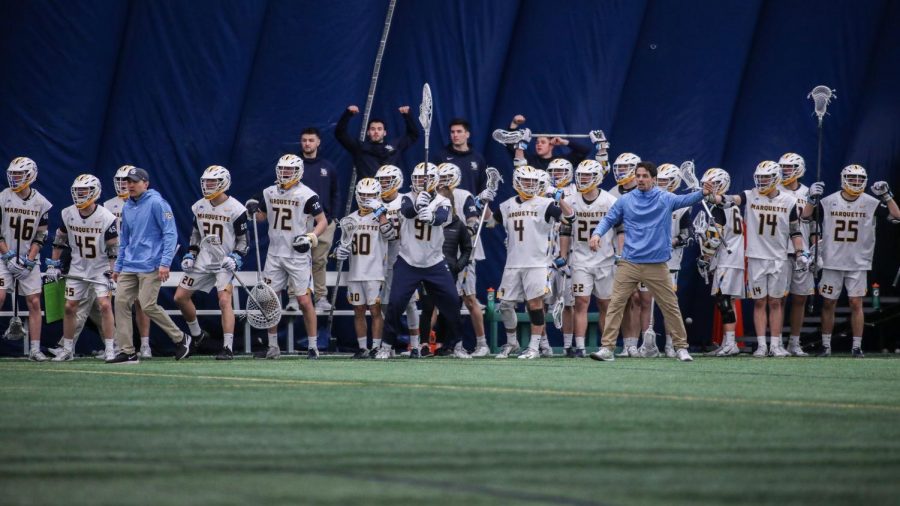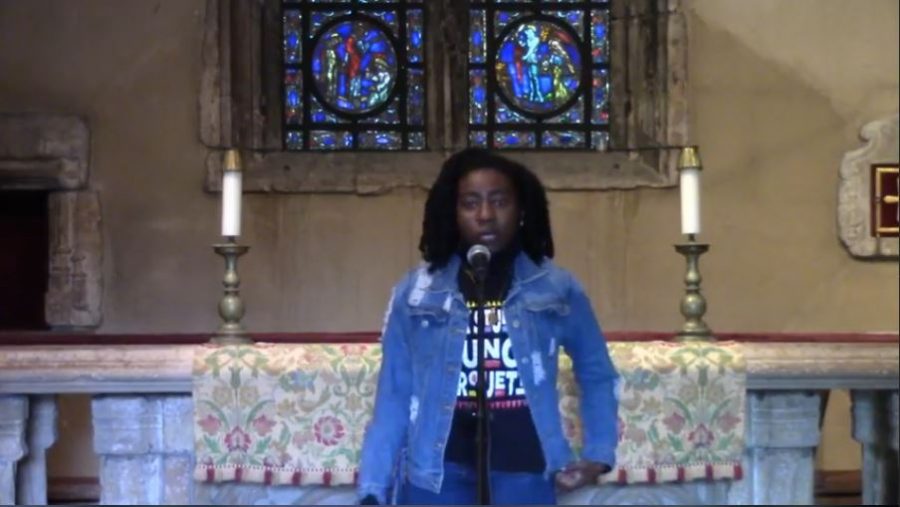Barbecue, games, music, dancing and laughs brought some of the Black community at Marquette together for a family cookout.
On Friday Sept. 23, the Black Student Council hosted a cookout. There was food from Ashley’s Bar-B-Que, a local Black-owned business, and DJ Gid Money playing music. There were also various activities and games: musical chairs, limbo, ping pong, bean bag toss, spike ball, Jenga and Connect Four.
“Being a Black and brown person, that’s something that we resonate with so much. Growing up, our families have so many cookouts to build that family atmosphere. That’s what the Black Student Council has been trying to do is implement that family cookout here on campus,” Lonny Clay, a senior in the College of Arts & Sciences and president of the Black Student Council, said.
For Clay, the event wasn’t just a cookout, but a way to bring students together and create a safe space on campus. Clay said Black students come up to him and share their feelings of isolation on campus due to the lack of spaces to be their authentic selves or being the only black person in their classroom.
After hearing these experiences, Clay and the BSC decided there was more to be done.
“We try to hold these events to bring the culture together so that they remember that there are other people that look like them, that share experiences with them, that they could connect with, grow with and be with friends. They can have those spaces where they feel secure and safe in their expression, in their identity,” Clay said.
Jeremiah Walker, a junior in the College of Arts & Sciences, describes his experience of being Black at Marquette as a “journey.” He said that he experienced imposter syndrome, isolation and depression as a minority at Marquette.
“I come here to be able to see our Black people on campus and not even just our Black people. Here we have diversity, all shapes and colors are here, so not only does it bring the Black people together, but it’s also bringing people that want to support us as minorities out as well,” Walker said.
Anyiah Anthony, a senior in the College of Arts & Sciences, said that diversity at Marquette is minimal.
“I’ve had two Black teachers through my whole four years here at this school and they were amazing teachers. We do need more of an influence, especially for our young Black students,” Anthony said.
4% of Marquette’s faculty of color identify as Black, as of fall 2021. Due to the lack of Black representation in the classroom, Anthony said that she values the community that BSC creates with its events.
Walker said that Marquette needs to learn to retain Black faculty and staff as well as listen to the requests of Black students.
“They said to be the difference, that we are the difference, but they don’t seem to do it in their own community,” Walker said. “It doesn’t correlate with the Jesuit type of values that they that they teach us, they think hammer into us every single day.”
Josiah Anderson, a junior in the College of Arts & Sciences, said that he feels like Black students are treated as children, especially when they are trying to create change.
“We’re kind of forced to have to believe in the promises and words of people, empowered that will never deliver for us and especially won’t put a sense of urgency behind their words and won’t try to get that done in a timely manner,” Anderson said.
Anderson said despite being treated as less than others, Black students are resilient.
“The small amount of black students we do have on campus shine bright and we’re always gonna shine because we’re excellent at everything that we do, and we earned and deserve our spot here,” Anderson said.
Olivia Ford, a junior in the College of Arts & Sciences, said that she feels Black students are underrepresented. As of fall 2021, 4.3% of undergraduate students of color identify as Black.
“We’re thriving, we’re trying to do our best with being in the position that we have been put in. We’re trying to make the best out of a situation that continuously tries to make us not okay,” Ford said.
Ford said events created by BSC, and other organizations help gather the Black community. The next event that BSC is hosting is a Halloween dance. The Ebony Ball, which Clay describes as the biggest event of the school year, is in the spring semester. Clay said that Ebony Ball represents black excellence across the entire university.
“I do appreciate the events that BSU does put on here on campus because it allows us to all come together and express our blackness in a way that won’t be described as destructive,” Ford said. “We are able to have fun and see each other and laugh and be able to congregate without worrying what the society thinks.”
This story was written by Hannah Hernandez. She can be reached at hannah.hernandez@marquette.edu.

